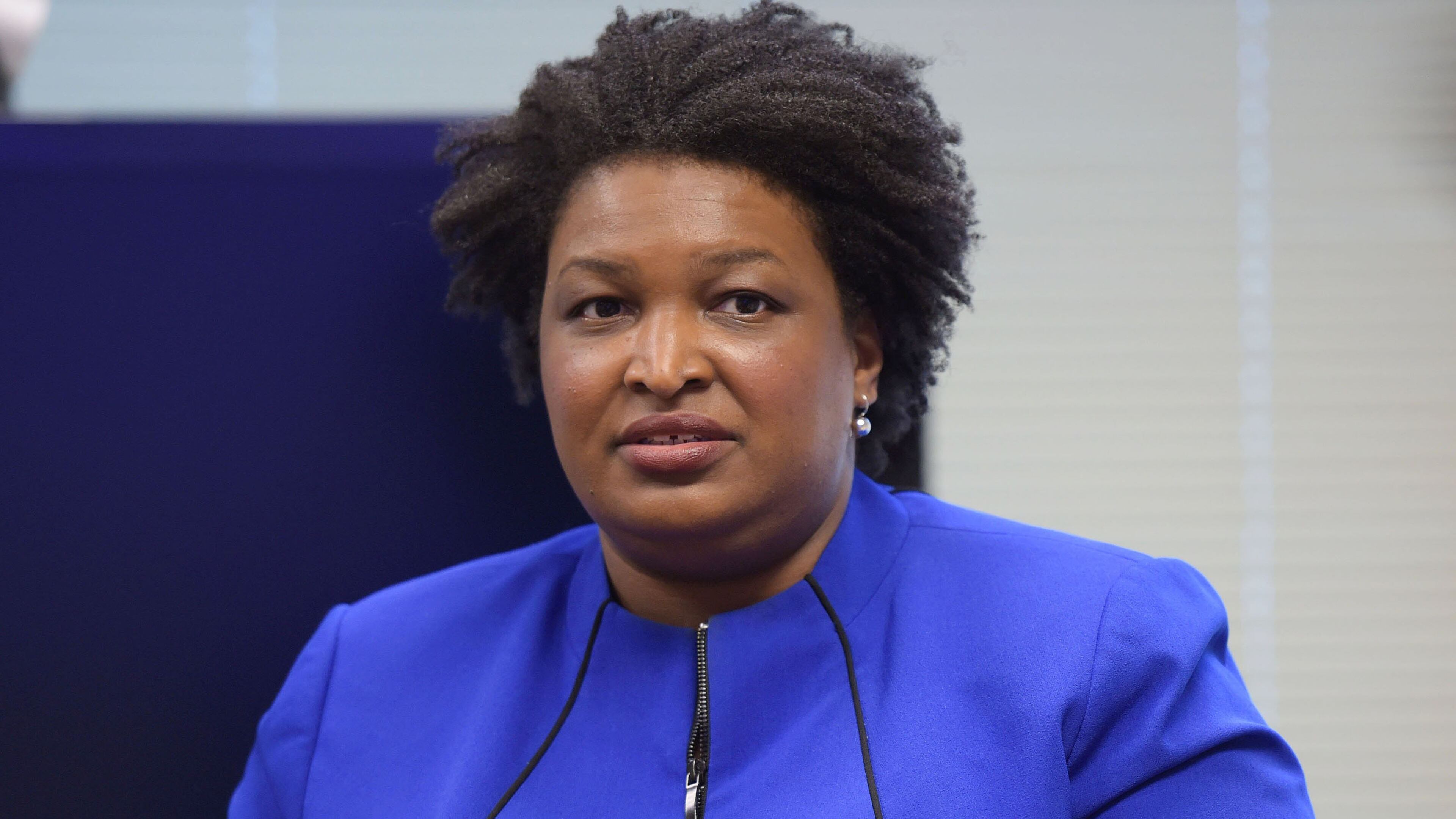Abrams proposes ‘bold’ scholarship to boost early child care in Georgia

Democrat Stacey Abrams unveiled a program Wednesday that she proposed as a way to make quality child care more affordable through a new scholarship, tax credits for teachers in early childhood jobs and an initiative to expand child care options to more rural areas.
Abrams said the proposals will be central to her run for governor, and she portrayed them as essential for Georgians struggling with high day care costs and few child care options. She underscored her pitch by appearing with a nanny who struggled to make ends meet and a young mother who had to shift her career goals because of high child care costs.
“This is a program not only about our children, but about our families,” said Abrams, who resigned as the Georgia House’s top Democrat to run for governor. “It’s a conversation about the economic future of the state.”
Abrams estimated the initiatives would cost about $350 million a year and would be funded through the closing of “tax loopholes” and eliminating the private school scholarship program that allots about $58 million in tax credits to private firms and residents who donate to the organizations, known as SSOs.
The student scholarship program is a popular GOP-backed initiative that has helped thousands of students attend private schools but has been criticized by advocates of public schools. Its supporters have filed proposals to nearly triple the program's size.
“The diversion of these dollars isn’t helping the most struggling students in Georgia,” Abrams said, adding: “Our investment has to focus on the most vulnerable populations.”
The centerpiece of her pitch is a Bold Start Scholarship Program that would be available to families who trigger an “affordability standard” by spending as much as 7 percent to 10 percent of their income on child care. Families could use the scholarships, estimated to cost about $300 million a year, for home-based care, child care centers or preschool.
She would expand the supply of child care options by partnering with community development agencies and offering new grants for early child care providers who work with children with disabilities, rural communities and kids whose parents are shift workers.
A separate tax credit would offer up to $1,000 for child care workers who seek more professional development at a cost of about $50 million a year. And she would launch an Afterschool Access campaign to expand after-school programs, including in robotics and other science programs.
Abrams is facing Democrat Stacey Evans, also a former House lawmaker, in next year’s primary. Five leading Republicans are in the race: Lt. Gov. Casey Cagle, former state Sen. Hunter Hill, Georgia Secretary of State Brian Kemp, businessman Clay Tippins and state Sen. Michael Williams.
Abrams rolled out her proposal at a child care center in south Atlanta, where she was joined by a half-dozen supporters including Jenny Loftin, a nanny who spoke about the low wages and lack of benefits in many child care jobs. She praised the notion of more incentives for early childhood education teachers.
“Ask anyone who works with small children and they will tell you: No one is in it for the money,” she said.



